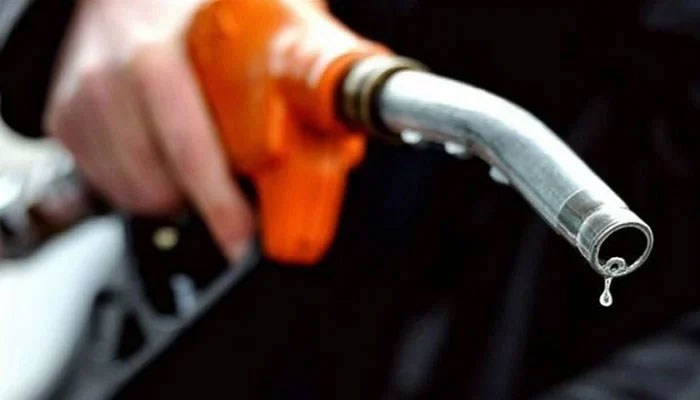Subsidies on POL products to go, gradually
At present, the government is giving Rs9/lit subsidy on petrol and Rs23/lit on diesel. It has been agreed that there will be no 17% GST on POL products
ISLAMABAD: Amid rising inflationary pressures, the IMF has asked Pakistan to slap a petroleum levy of Rs230 billion in the budget for 2022-23, making it clear that the government will have to collect it in a gradual manner by withdrawing subsidies on petrol and diesel.
At present, the government is giving Rs9 per litre subsidy on petrol and Rs23 per litre on diesel. It has been agreed that there will be no 17 percent GST on POL products.
"The inflation-stricken masses will have to face a torturous price hike in the next fiscal,” official sources said, adding that the government has fixed the inflation target on average in the range of 11.5 percent for the next financial year. However, independent economist Dr Hafiz A Pasha has predicted that inflation might touch 25 percent mark in the next fiscal year.
When contacted, a top official said that the government would have to collect petroleum levy in the vicinity of Rs4 to Rs5 per liter in a gradual manner provided price reduction in the international market.
With Federal Finance Minister Miftah Ismail going to unveil the upcoming budget for 2022-23 in parliament having two objectives in his mind -- to please the IMF by aligning number crunching in line with its programme and place targeted subsidies to save masses from rising inflation.
The government is considering allocating Rs900 billion to Rs1,000 billion subsidies in the next fiscal. There is an opportunity available to the government to mobilise tax revenues through imposition of direct taxes on the affluent. The government is also considering granting raise in salaries and pensions of government employees.
Basically, three different proposals are under consideration to increase salaries from 5 to 15 percent in the next fiscal depending upon the available resource envelop to the government at a time when the country is currently under the IMF watch.
With an outlay of around Rs955 billion, Pakistan’s budget revolves around 3Ds, debt-servicing, defence and development spending. The government is all set to envisage FBR’s tax collection target of Rs7,255 billion for the next budget and then the non-tax revenue target will be standing at Rs1,700 billion. With inclusion of all avenues, the total non-tax revenue collection might touch Rs2,000 billion mark. After providing resources to the provinces under the NFC Award, debt-servicing is going to take Rs4,000 billion.
The government will make Rs1,523 billion defence allocation in the budget while the Public Sector Development Programme (PSDP) will get Rs800 billion. Pensions at federal level will consume more than Rs500-600 billion in the coming fiscal year. Salaries and running government expenses will incur Rs500 billion. Choices are limited and hard for budget makers but they will have to take tough measures to steer the economy out of the crisis.
-
 Why Prince William Releases Statement On Epstein Scandal Amid Most 'challenging' Diplomatic Trip?
Why Prince William Releases Statement On Epstein Scandal Amid Most 'challenging' Diplomatic Trip? -
 Historic Mental Health Facility Closes Its Doors
Historic Mental Health Facility Closes Its Doors -
 Top 5 Easy Hair Fall Remedies For The Winter
Top 5 Easy Hair Fall Remedies For The Winter -
 Japan Elections: Stock Surges Record High As PM Sanae Takaichi Secures Historic Victory
Japan Elections: Stock Surges Record High As PM Sanae Takaichi Secures Historic Victory -
 Prince William, Kate Middleton Finally Address Epstein Scandal For First Time: 'Deeply Concerned'
Prince William, Kate Middleton Finally Address Epstein Scandal For First Time: 'Deeply Concerned' -
 Kim Kardashian Promised THIS To Lewis Hamilton At The 2026 Super Bowl?
Kim Kardashian Promised THIS To Lewis Hamilton At The 2026 Super Bowl? -
 Andrew Mountbatten-Windsor Throws King Charles A Diplomatic Crisis
Andrew Mountbatten-Windsor Throws King Charles A Diplomatic Crisis -
 Barack Obama Hails Seahawks Super Bowl Win, Calls Defense ‘special’
Barack Obama Hails Seahawks Super Bowl Win, Calls Defense ‘special’ -
 Pregnant Women With Depression Likely To Have Kids With Autism
Pregnant Women With Depression Likely To Have Kids With Autism -
 $44B Sent By Mistake: South Korea Demands Tougher Crypto Regulations
$44B Sent By Mistake: South Korea Demands Tougher Crypto Regulations -
 Lady Gaga Makes Surprising Cameo During Bad Bunny's Super Bowl Performance
Lady Gaga Makes Surprising Cameo During Bad Bunny's Super Bowl Performance -
 Paul Brothers Clash Over Bad Bunny's Super Bowl Performance
Paul Brothers Clash Over Bad Bunny's Super Bowl Performance -
 South Korea: Two Killed As Military Helicopter Crashes During Training
South Korea: Two Killed As Military Helicopter Crashes During Training -
 Elon Musk Unveils SpaceX’s Moon-first Strategy With ‘self Growing Lunar City’
Elon Musk Unveils SpaceX’s Moon-first Strategy With ‘self Growing Lunar City’ -
 Donald Trump Slams Bad Bunny's Super Bowl Performance: 'Absolutely Terrible'
Donald Trump Slams Bad Bunny's Super Bowl Performance: 'Absolutely Terrible' -
 Jake Paul Criticizes Bad Bunny's Super Bowl LX Halftime Show: 'Fake American'
Jake Paul Criticizes Bad Bunny's Super Bowl LX Halftime Show: 'Fake American'




